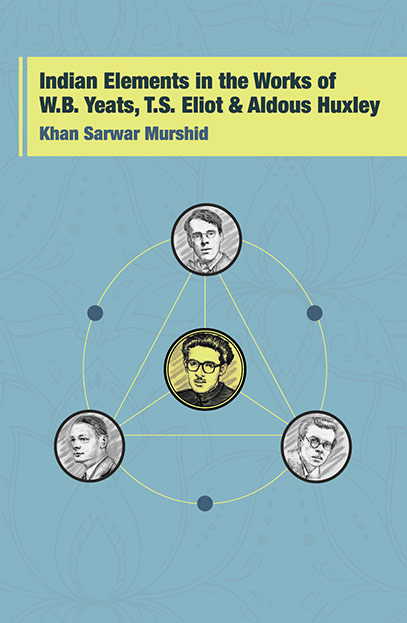
- Shop
- Literary Criticism
- Indian Elements in the Works of W.B Yeats, T.S. Eliot & Aldous Huxley
Indian Elements in the Works of W.B Yeats, T.S. Eliot & Aldous Huxley
https://uplbooks.com/shop/9789845062800-indian-elements-in-the-works-of-w-b-yeats-t-s-eliot-aldous-huxley-8412 https://uplbooks.com/web/image/product.template/8412/image_1920?unique=3d813f3
| Language: English |
Tags :
Book Info
The book deals with themes of eternal concern such as right conduct and moral responsibility, the relationship between the physical and the metaphysical, notions of time and infinity, and the search for truth, justice, enlightenment and inner harmony. At its core is embedded a quest for the values that must define human existence. Disillusioned by man’s capacity for evil after the great wars, Western scholars began to look east in search of moral certitude. Vedanta as philosophy, its idea of the Absolute Principle represented by Brahman, concepts of renewal and continuity embedded in the knowledge that ‘all that has been shall be again’, along with Buddhist concepts of right conduct and worldly detachment, seemed to provide for an orderly vision. Yeats, Eliot and Huxley all sought solace in the philosophy and culture of India. Together, they represented ‘a phase in the consciousness of Europe’. In their search for intellectual and moral certitude, each embarked on a personal journey determined by their connection to Christianity, the nature of society and the relationships they valued. The colonised East thus exacted its revenge on the Western mind, ironically by opening up new frontiers of intellectual exploration.

Khan Sarwar Murshid
Khan Sarwar Murshid (1924-2012) is widely known in Bangladesh as an educationist, a scholar, an activist and for most of his life, a teacher at the Dhaka University English Department. He served as ambassador to Poland and as the Assistant Secretary-General to the Commonwealth Secretariat. Inspired by the Buddhir Mukti Andolon and literary greats such as Tagore, Shakespeare, Rilke, and Dante, his intellectual pursuits sharpened his humanist and philosophical outlook on life. Committed to ideals of right conduct and social order, he supported Bangabandhu Sheikh Mujibur Rahman’s Six Points Programme for autonomy for Bangladesh, and all his life championed democratic good governance. In this context, he founded Nagorik Udyog, served as Chairperson of Transparency International Bangladesh, and joined various

খান সারওয়ার মুর্শিদ
Khan Sarwar Murshid (1924-2012) is widely known in Bangladesh as an educationist, a scholar, an activist and for most of his life, a teacher at the Dhaka University English Department. He served as ambassador to Poland and as the Assistant Secretary-General to the Commonwealth Secretariat. Inspired by the Buddhir Mukti Andolon and literary greats such as Tagore, Shakespeare, Rilke, and Dante, his intellectual pursuits sharpened his humanist and philosophical outlook on life. Committed to ideals of right conduct and social order, he supported Bangabandhu Sheikh Mujibur Rahman’s Six Points Programme for autonomy for Bangladesh, and all his life championed democratic good governance. In this context, he founded Nagorik Udyog, served as Chairperson of Transparency International Bangladesh, and joined various


